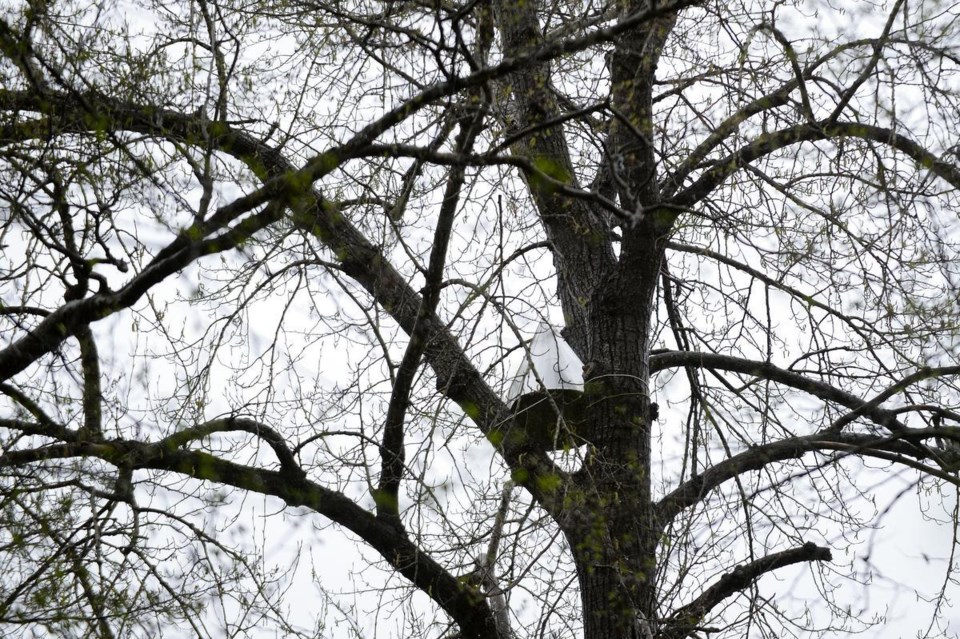A B.C. Supreme Court has dismissed a case challenging the B.C. government’s decision to allow the University of British Columbia to place a metal cone over an eagle’s nest to prevent the birds from using it during construction of a nearby residential complex.
The case, brought by teacher Ryan Jaco against the B.C. Minister of Forests and University of British Columbia Properties Trust (UBCPT), stems from 2017.
That year a breeding pair of eagles was discovered at the university’s Vancouver campus in the 1.25-metre-wide nest built high up on a Douglas fir tree.
From 2018 to 2020, construction of nearby multi-unit residential buildings at Ross Drive and Birney Avenue occurred inside the eagles’ buffer zone. A report later recommended building an alternate nest further away from the building site.
“The eagles did not use the alternate nest in the fall of 2022 or during breeding season in 2023,” wrote Justice Anita Chan, in her ruling.
In September 2022, the property trust received a two-year permit from the province’s regional wildlife manager Jack Evans to place a metal cone on the original nest to prevent the eagles from occupying it.
Meanwhile, Jaco, who lived near the nest, “developed a genuine interest” in the eagles’ safety and well-being, but despite raising concerns at public hearings, “did not receive any meaningful response,” wrote Chan.
The teacher co-founded the Save UBC Eagles Campaign to advocate against placing a cone on the nest. The campaign also called on UBC to pursue development plans that are environmentally responsible. An online petition garnered more than 19,000 supporters.
While construction on the residential buildings began in July 2023 and “is now well under way,” Chan said the eagles moved on to use other nests in Pacific Spirit Park.
In determining whether the case should go forward, Chan found the evidence Jaco had “genuine interest in the claim” was “very minimal.” The justice noted that in 11 letters sent by the campaign, not one mentioned the teacher’s name.
The teacher's interest in the eagles’ nest and the claim to the court “was short-lived,” Chan wrote.
Chan also ruled that regional wildlife manager acted within his discretion and in accordance with the Wildlife Act.
“In this case, what was permitted was to temporarily place a metal cone on an eagles’ nest. This type of activity can only be permitted if the regional manager is satisfied it would not be contrary to the proper management of wildlife resources,” Chan wrote.
Permits to place cones on an eagles’ nest can last no longer than five years, she added.



